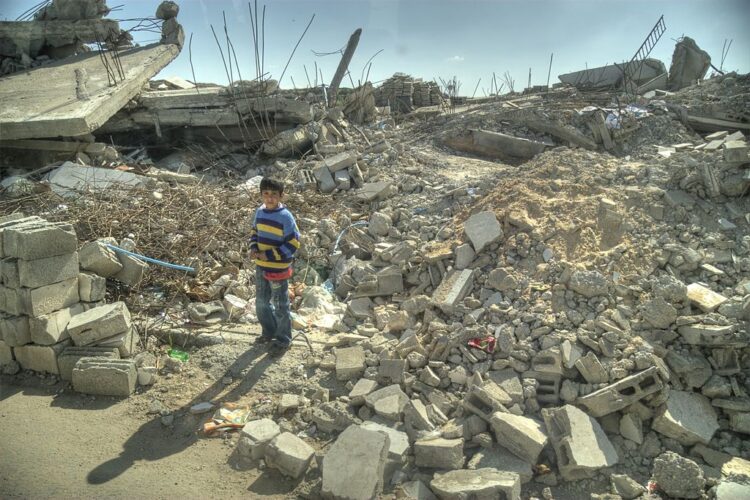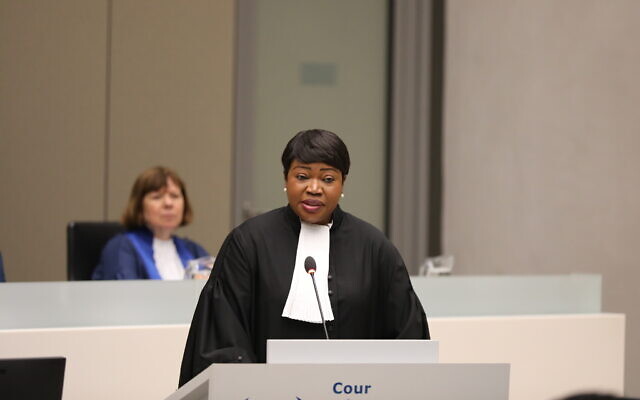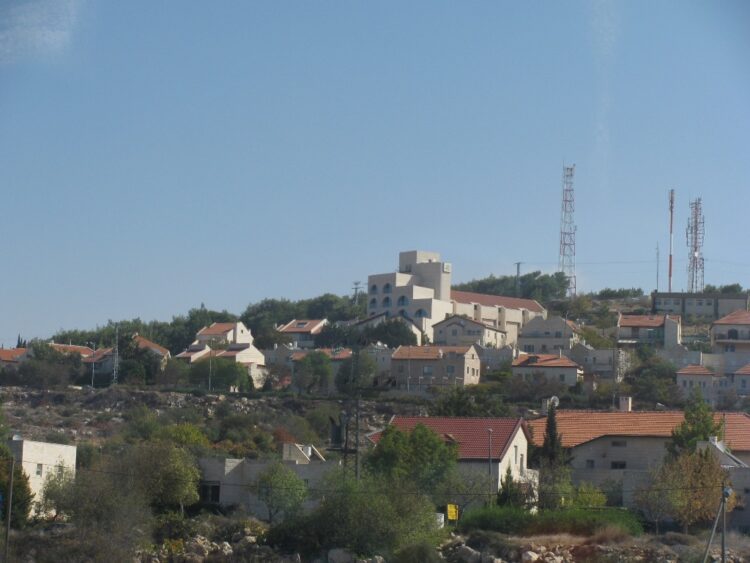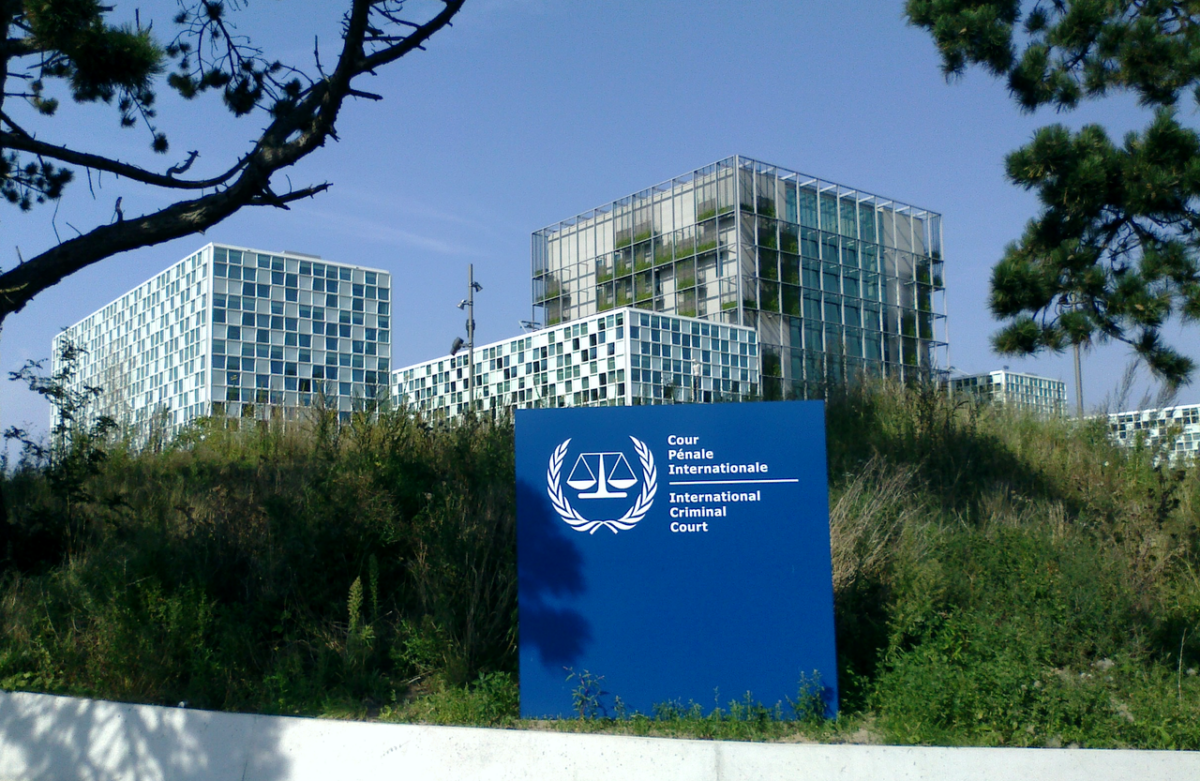Prime Minister Benjamin Netanyahu reacted indignantly to the recent announcement by Fatou Bensouda, the outgoing chief prosecutor of the International Criminal Court, that a formal investigation would be launched into allegations that Israel — and the Palestinians — committed war crimes in the West Bank and the Gaza Strip.
Bensouda, who steps down from her post in June, handed down this ruling soon after the ICC determined it had jurisdiction there.
The court will focus on the 2014 Gaza war, during which Hamas and Islamic Jihad shelled Israeli border communities indiscriminately and Israel struck back by means of air and artillery strikes. These tit-for-tat exchanges caused widespread property damage and many casualties.

The ICC, which is based in The Hague, will also investigate Israel’s settlement project in the West Bank, which is claimed by the Palestinians. Populated by more than two million Palestinian Arabs and 400,000 Israeli Jews, these outposts break up the territorial contiguity of the West Bank, where the Palestinians hope to achieve statehood, and a source of constant tension.
To no-one’s surprise, Netanyahu was furious by the court’s ruling. Asserting that Israel was “under attack” and that his government “will never stop fighting this injustice,” he lambasted its verdict as “undiluted antisemitism and the height of hypocrisy.”
In the same vein, Israeli Foreign Minister Gabi Ashkenazi denounced its decision as “morally bankrupt and legally flawed.”
Israel, which is not an ICC member, is naturally concerned by the implications flowing from its ruling. As Defence Minister Benny Gantz has estimated, a few hundred Israelis could be subject to arrest warrants should the ICC proceed with the case after Bensouda retires and British barrister Karim Khan replaces her.

The court’s case against Israel with respect to the Gaza war rests on thin ice, but its complaint regarding the settlements is on solid ground.
Israel is not responsible for having started the 50-day Gaza war. The responsibility lies entirely with Hamas, which seized Gaza from the mainstream Fatah movement in 2007 and, with the active assistance of Iran, turned that Mediterranean coastal enclave into a bristling armed camp.
The Israeli army unilaterally withdrew from Gaza in 2005, forcing all the Jewish settlers to leave their homes and farms. Hamas could then have concentrated its efforts on creating prosperity in Gaza, but instead it poured its scarce resources into building a platform from which to attack Israel. And once hostilities began, Hamas commandeered civilian buildings as cover in callous disregard of the inevitable consequences.
It goes without saying that Israel had no alternative but to respond to Hamas’ aggression, which has spawned three wars and countless skirmishes to date. Israel has every right under international law to defend its territorial integrity from encroachment and its citizens from harm.
Hamas and its sister organization, Islamic Jihad, are fully to blame for the fatalities and the misery in Gaza. The ICC must take these factors into account when it investigates war crimes there.
The settlements, however, are another matter altogether.
From this perspective, Israel brought the wrath of the ICC on itself. Successive Israeli governments built and expanded a network of settlements to claim the land and deny the Palestinians statehood. This was not a war crime in and of itself, but it was surely a tactic designed to keep the Palestinians stateless, humiliated and in thrall to Israel.

To assert that the ICC is engaging in antisemitism and is “morally bankrupt,” as Netanyahu and Ashkenazi respectively claim, is patently ridiculous and blatantly self-serving.
A far more plausible explanation for the ICC’s investigation was offered by Nitzan Horowitz, the leader of the Meretz Party, who said that Israel’s settlement policy prompted the court to act. As he put it earlier this month, “Those who are dragging Israel to the court are Netanyahu, the right, and the settlers.”

“This is a failure of Israeli leadership and policy that is preserving the occupation,” he added. “The leaders of the right should think about what they did that brought us to this situation. I think it is very much in Israel’s interest to end the occupation. Anyone who thinks this policy (of maintaining the settlements) can continue without a price is mistaken.”
Horowitz is absolutely right.
Israel’s counter-productive settlement policy, which is expected to come under close scrutiny by the ICC, is widely condemned, even by its closest allies.
Israel cannot ever hope to forge peace with the Palestinians unless it withdraws from the West Bank within the framework of an agreement that ensures its security and enables the Palestinians to achieve independence and sovereignty.
This is the lesson that Israel should draw from the ICC’s decision to launch an investigation into its practices.
